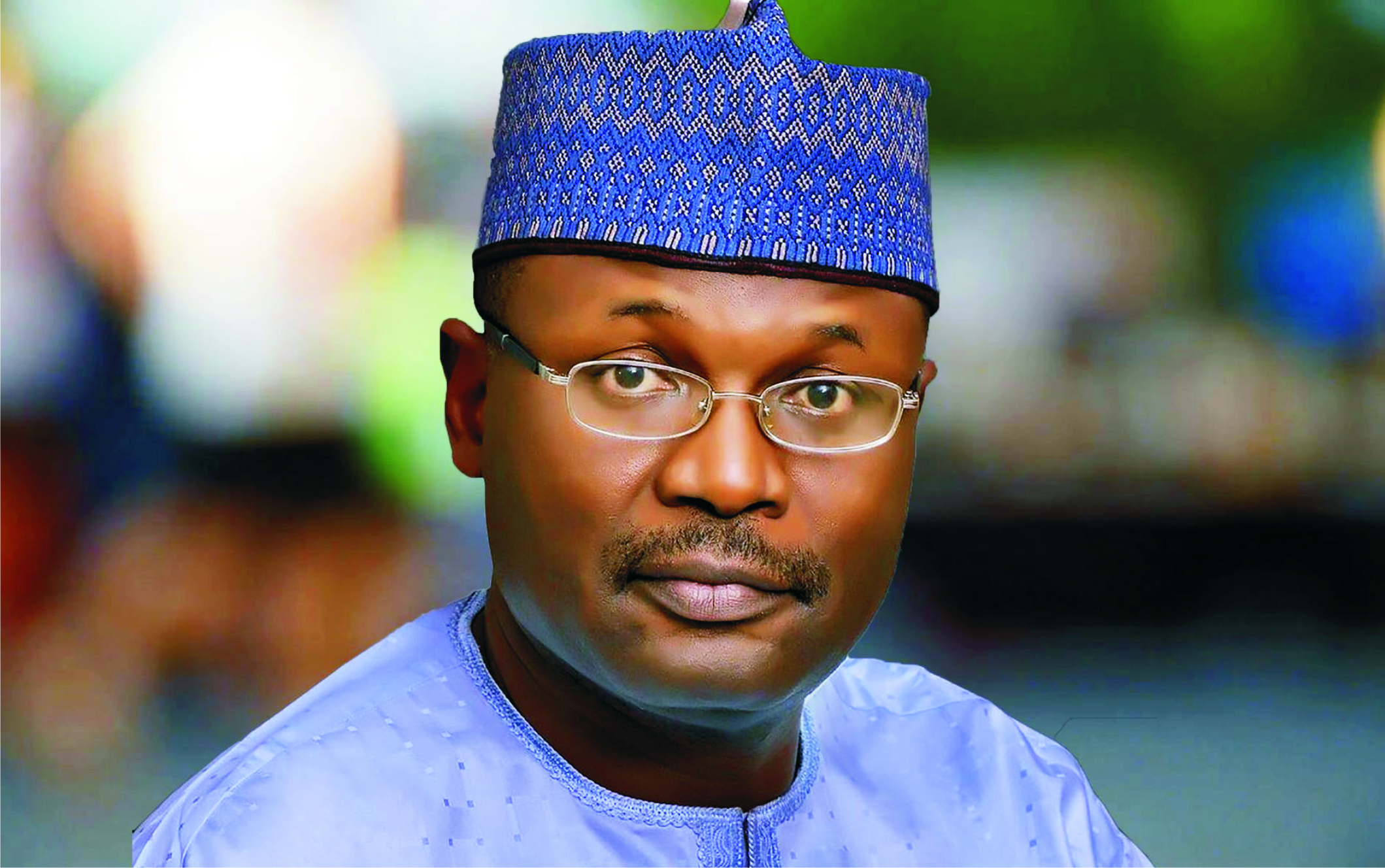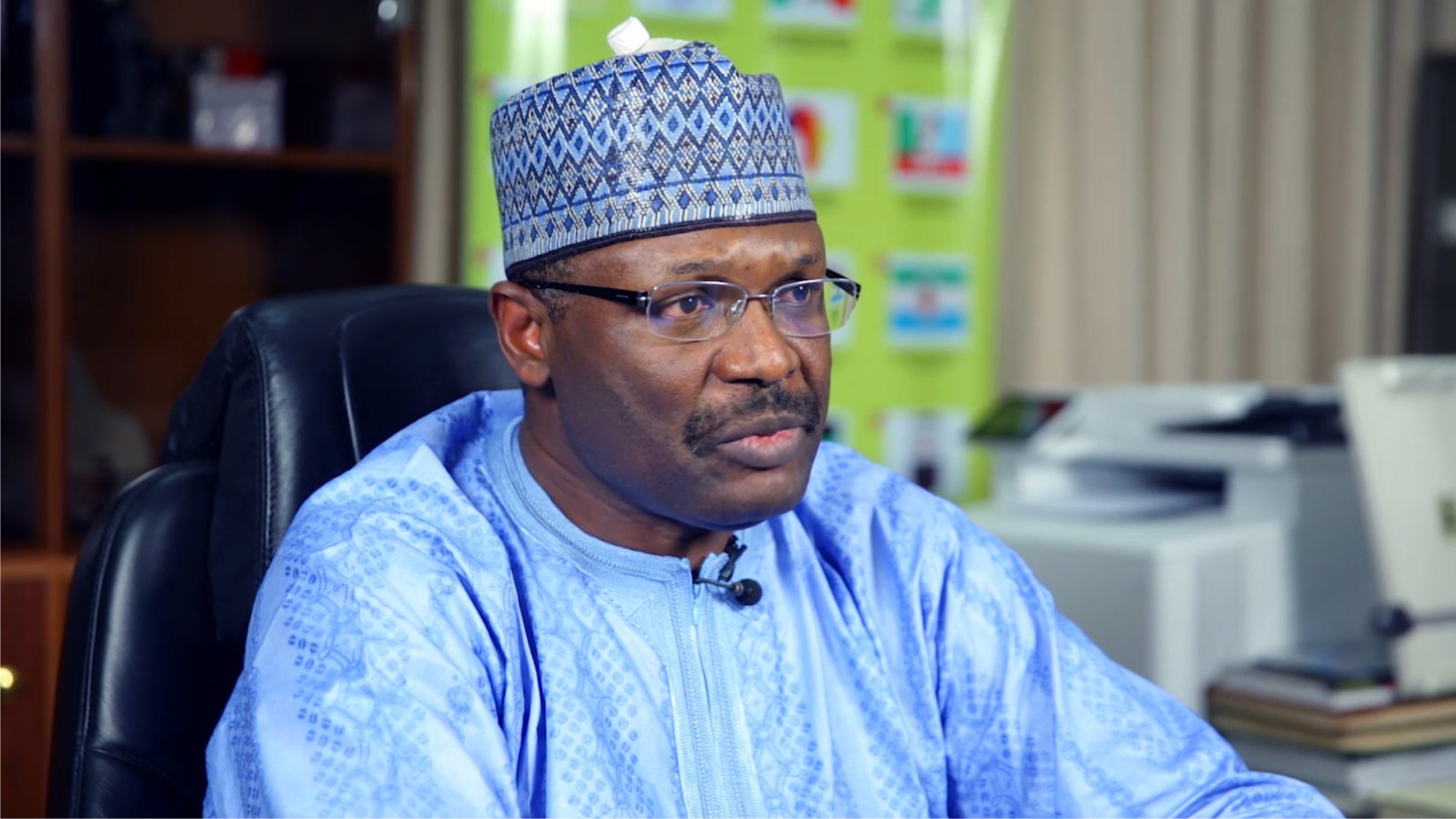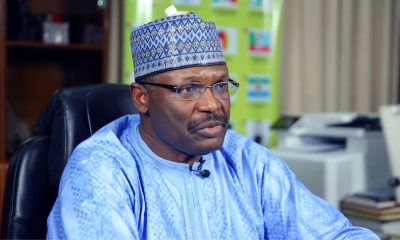Politics
Electronic Transmission Of Results, In Whose Interest?

“I am not in support of electronic transmission of results. We are not ready. It is best if we are equipped and ready to secure the website that nobody can hack. If we say for 2023, we are going to transmit results electronically, is it possible? Everybody knows that it is only the person with the highest number of votes that will get it. So, results should be announced at the polling units and collation centres, where applicable. Let us not start what we cannot do.”
That was the position
proudly made public by a Distinguished Senator of the Federal Republic representing Bauchi South Senatorial District of Bauchi State.
As the agency that bears much of the difficulties and collateral consequences associated with manual collation and transmission of votes at elections, over the years, the Independent National Electoral Commission (INEC) had expressed preference for the adoption of electronic results by electronic means. Against this backdrop, Chairman of the Commission, Prof. Mahmood Yakubu, had urged the National Assembly to amend the Constitution and the Electoral Act 2010 to allow for electronic collation and transmission of results; arguing that the manual method enshrined in the laws is too cumbersome and expensive.
“We have to also address our electoral process which is manual. It is too expensive and cumbersome. The process of collating results is sometimes chaotic because the law says that you must write results manually and collate them manually right from the polling unit to the ward, from the ward to the local government, then, the state and from the state to the national level, in the case of the presidential election. “A lot has been achieved in other climes with the simple application of technology. So, the encumbrances to the deployment of technology in the transmission of election results should be removed as part of this process”, the INEC boss said as part of his submission to the Electoral Act Amendment Bill.
Last week, Nigerians’ expectation for the bill to be passed into law by the Senate was dashed as controversy arose amongst the lawmakers with the questionable appearance of a strange Section 50 (2) which completely outlaws transmission of votes by electronic means.
The contentious provision states that voting at an election under this Bill shall be in accordance with the procedures determined by the commission, which may include electronic voting provided that the commission shall not transmit results of the election by electronic means.”
Of course, the report of the Senate Committee on INEC, led by Sen. Kabiru Gaya, which prepared the bill did not make it to plenary until last Wednesday as some members of the committee threatened to raise objection on the floor of the senate unless the offensive section was expunged and the version to be laid before the senate faithfully corresponds with what they collectively signed up to.
The question Nigerians have since been asking is, who is afraid of electronic transmission of election results and why? With admirable results already recorded on the electronic transmission of election results by INEC in some previous elections including the September, 2020 Edo State governorship election, Nigerians are wondering why anyone would hinder the full scale and unfettered application of appropriate and requisite technology in our electoral system, especially seeing that the electoral body itself has not indicated lack of capacity, inability or unwillingness to undertake the process.
Yet the Chairman, Senate Committee on Army, Senator Ali Ndume, is reported to have said that electronic voting and transmission of election results will not work in the northern part of the country come 2023.
“As a member of the Senate, I am talking realistically, the issue of electronic voting is futuristic, but not realistic for us in the north, particularly. Can you do electronic voting or transmission of results without electricity? The answer is no; he said. According to Senator Ndume, who represents Borno South Senatorial District, the adoption of electronic voting and transmission of results will render the electoral process vulnerable adding that while he was determined to stand against the electronic means, himself and his people were comfortable with the writing of results in hard copies.
“What they are trying to do is to make the election vulnerable. Supposing somebody drops a virus in the process, supposing somebody desfroys the collation centre or attacks the server, what will happen?”, he reasoned, insisting that the envisaged benefits of reduced tension, killing and election rigging were untenable, people rig election only where they are already popular.
“Infact, electronic voting is more susceptible to manipulation… So, we don’t want to get involved in that, particularly we, the northern senators, because we are the ones that don’t have the facilities or the infrastructure that is required to conduct electronic voting … So you are saying that we should go through electronic voting for what? Let’s go out and vote the way we have been voting before”, Senator Ndume insisted.
Reacting to questions on the subject matter, erstwhile INEC Chairman, Prof. Attahiru Jega said, “once there is a robust software and hardware for doing so, it now brings efficiency, transparency and real time ability to see the result as they are transmitted from the polling unit to a National Collation Centre”, however adding that “there are so many challenges in our country. For one to be able to do effective, thorough electronic voting, you need the infrastructure, software and associated support infrastructure. For example, stability of electricity, extensive network coverage and robust internet facilities,” and advised Nigerians to “make haste slowly”.
Yet, individuals and stakeholder groups like the Centre for Democracy and Development (CDD) have expressed the view that the process of collating results had been usually chaotic, vulnerable to manipulation, sometimes violently disrupted and needlessly shrouded, adding that it was to cure this that the electronic transmission of results got endorsement from a wide range of stakeholders, during the public hearings embarked upon by the National Assembly as part of the process to amend the Electoral Act.
“It will eliminate interference by security agents, politicians and even thugs in the collation process. There will not be reason to kidnap electoral officials and snatch ballot materials”, Director, CDD, Idayat Hassan, said, emphasising that, “In Nigerian elections, you can win during voting but lose during collation. Electronic transmission will take away the power of the Returning Officers to influence the election process”. According to Hassan, a paper format that will serve as a back up in the electronic transmission arrangement will take care of the probable incidences of a malfunction of criminal interference.
In his own reaction, Lead Director of the Centre for Social Justice, Eze Onyekpere said those who were arguing against the inclusion of the provision of electronic transmission of results were those who haboured intentions to manipulate votes during elections.
“With election transmission, there will not be any case of results missing on the way or snatching of ballot boxes. Any politician that does not want that to happen is planning to rig election”, Auwal Rafsanjani said.
A report of the joint committee on INEC in the Senate and House of Representatives which was debated yesterday was verified to read” “Section 52 (1)” Voting at an election under this Bill shall be by open secret ballot.
“52 (2) voting at an election under this Bill shall be in accordance with the procedure determined by the Commission, which may include electronic voting.
“52 (3) The commission may transmit results of elections by electronic means where and when practicable”.
Whichever way the National Assembly chooses to swing, Nigerians just don’t want to continue with the system that threatens the lives, livelihoods, mandate and stability of the democratic system at every election season. This, they hope, will be achieved for me them through the Electoral Act Amendment Bill 2021.
By: Opaka Dokubo
Politics
2027: Bayelsa APC Adopts Tinubu As Sole Candidate … As Lokpobiri, Lyon Shun Meeting
Politics
Alleged Smear Campaign Against Yakubu, CSOs Demand Apology From Uzodimma

During a press conference held in Owerri, the coalition called the campaign a “dangerous and shameful display” designed to distract the public from the governor’s performance in office.
The CSOs directly linked the Greater Imo Initiative (GII) —the group that made the allegations on September 4, 2025—to Governor Uzodimma, describing the group as his “mouthpiece and attack dog.”
“Every word spoken against INEC was spoken on his behalf.
“By falsely alleging that Professor Yakubu has an alliance with Dr. Amadi to compromise the 2027 elections, Uzodimma has not only maligned a man of proven integrity but also assaulted the very foundation of our democracy”, said Dr Agbo Frederick, speaking for the coalition.
The coalition described Professor Yakubu as a “beacon of electoral professionalism” and called the attempt to soil his reputation “defamatory and a national security risk.”
They also defended Dr. Amadi, a “respected development scholar,” stating that the governor’s accusations were “laughable, desperate, and dangerous.”
The CSOs see the motive behind the campaign as an attempt to “silence the dissent, intimidate the opposition, and divert attention from the governor’s abysmal record in office.”
The coalition issued four key demands to Governor Uzodimma: An immediate retraction of the false and defamatory allegations against Professor Mahmood Yakubu and Dr. Chima Amadi.
- A public apology to both men within seven days, to be published in at least three national newspapers and broadcast on major television networks.
- An end to diversionary tactics and proxy propaganda.
- A renewed focus on governance, including addressing insecurity, unemployment, and poverty in Imo State.
The CSOs warned that failure to comply would force them to “review our position with a view to seeking legal redress from Governor Uzodimma for defamation, false accusation, and reckless endangerment of lives.”
“Governor Uzodimma must be reminded that he did not find himself in the seat of power to chase shadows.
“We call on all Nigerians to reject Uzodimma’s diversionary antics as they are nothing short of desperate plots by a government terrified of accountability”, the statement concluded.
Politics
Stopping Natasha’s Resumption Threatens Nigeria’s Democracy – ADC
In a statement signed by its National Publicity Secretary, Mallam Bolaji Abdullahi, the ADC expressed concern that preventing the senator from resuming her legislative duties violates democratic principles and disenfranchises her constituents.
“The suspension, having been imposed by the Senate and not a court of law, has lapsed. Any further attempt to prevent her from resuming is therefore both illegal and morally indefensible,” Mallam Abdullahi said.
The party noted that denying Sen. Akpoti-Uduaghan access to the chamber silences the voice of the people who elected her, adding that the withdrawal of her salary, aides, and office access during the suspension amounted to excessive punishment.
The ADC also criticised the Clerk of the National Assembly for declining to process her resumption on grounds that the matter was before the courts, arguing that the Clerk’s role was administrative, not judicial.
“Administrative caution must not translate into complicity. When the administrative machinery becomes hostage to political interests, the institution itself is diminished,” the party stated.
Highlighting that Sen. Akpoti-Uduaghan is one of only four women in the 109-member Senate, the ADC warned that the handling of the case sends a discouraging signal about gender inclusion in Nigerian politics.
“Any action that resembles gender intimidation of the few women in the Senate would only discourage women’s participation. Nigeria cannot claim to be a democracy while excluding half of its population from key decision-making spaces,” Mallam Abdullahi added.
The ADC insisted that Sen. Akpoti-Uduaghan be allowed to resume her seat immediately, stressing that the matter was about more than one individual.
“What is at stake here is not just one Senate seat, but the integrity of our democracy itself,” the party said.
-
Politics1 day ago
2027: Bayelsa APC Adopts Tinubu As Sole Candidate … As Lokpobiri, Lyon Shun Meeting
-
Sports1 day ago
GOtv Boxing Night 34 holds Dec. in Lagos
-

 Politics1 day ago
Politics1 day agoAlleged Smear Campaign Against Yakubu, CSOs Demand Apology From Uzodimma
-
Politics1 day ago
2027: Jega Condemns Premature Campaigns, Blames Elected Officials
-
Politics1 day ago
Why INEC Can’t Punish Politicians For Early Campaigns – Yakubu
-
Sports1 day ago
WCQ: NFF Denies Post Match Statement
-
Politics1 day ago
Stopping Natasha’s Resumption Threatens Nigeria’s Democracy – ADC
-
Sports1 day ago
Gov. Decries Delta’s Poor Performance At 2025 NYG

